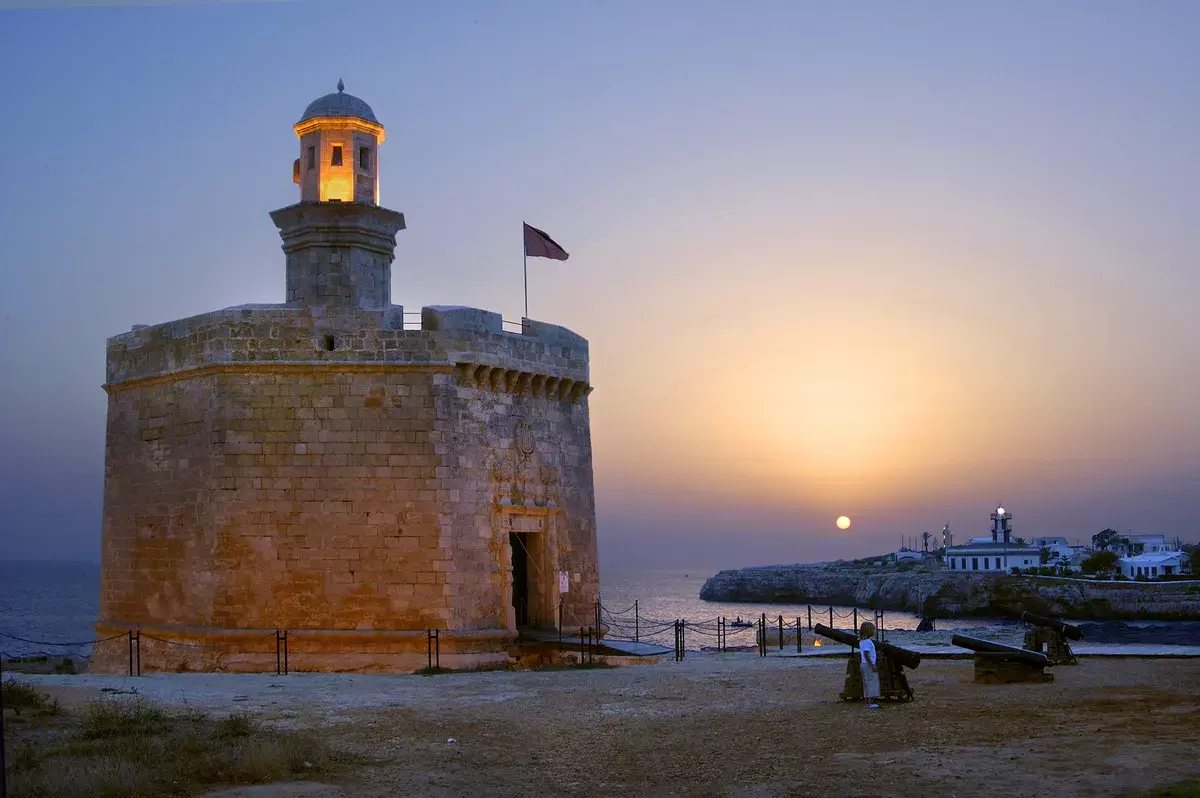History of Menorca
From prehistory to the Phoenicians, Greeks, Vandals, Byzantines, Arabs, French, and British, Menorca has been exposed to the ambitions of numerous civilizations. The desire of different peoples to dominate the island has left a legacy with a visible and lasting imprint on our heritage. Part of the essence of who we are today is rooted in our past, in our history.
PREHISTORY (ca. 2500–123 BC)
• Pre-Talayotic Culture (ca. 2500–1600 BC)
First agricultural and livestock communities. Construction of dolmens and megalithic tombs.
• Talayotic Culture (ca. 1600–123 BC)
Development of talayots, taulas and navetas (such as the famous Naveta des Tudons).
Society organized into small fortified communities.
ANCIENT AGE
• Carthaginians (6th–3rd century BC)
Menorca enters the Punic sphere; possible military and commercial use.
• Roman conquest (123 BC)
Quintus Caecilius Metellus incorporates Menorca into Rome.
Magona (Mahón) and Iamo (Ciutadella) are founded.
Romanization, agricultural economy and craftsmanship.
EARLY MIDDLE AGES
• Vandals (5th century)
Becomes part of the Vandal kingdom.
• Byzantines (534–902)
Byzantine restoration; early Christianity.
• Islamic period (902–1287)
Menorca becomes part of Al-Andalus and later of the Caliphate/Taifas of Córdoba.
In the 13th century it becomes a tributary emirate of the Crown of Aragon.
Great agricultural and urban development.
LATE MIDDLE AGES
• Aragonese conquest (1287)
Alfonso III takes Menorca. The Muslim population is enslaved or expelled.
Repopulated with Catalan Christians → Origin of Menorcan Catalan.
• 14th–15th centuries
Feudalism, demographic crisis and pirate attacks.
MODERN AGE
• 16th–17th centuries
Repeated Ottoman and Berber attacks.
Coastal fortification and construction of defensive towers.
• British rule (1708–1756)
Menorca falls under the United Kingdom during the War of the Spanish Succession.
Mahón is modernized and trade is boosted.
British influences: Menorcan gin, Georgian architecture.
• French occupation (1756–1763)
Short period under France.
• Second British period (1763–1782)
Return of British rule after the Treaty of Paris.
• Spanish control (1782–1798)
Recovered by Spain.
• Third British period (1798–1802)
Last British stage.
The island returns definitively to Spain with the Treaty of Amiens (1802).
CONTEMPORARY AGE
• 19th century
Agricultural and naval economy; economic liberalization.
• 20th century
Spanish Civil War: Menorca remains loyal to the Republic until 1939.
Opening to tourism from the 1960s–70s.
Urban growth and development of the service sector.
• 21st century
2005: Menorca is declared a Biosphere Reserve (extended in 2019).
Sustainable tourism, preservation of Talayotic heritage and rural landscape.
